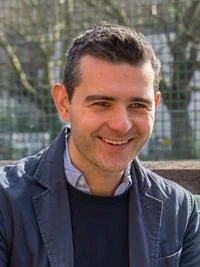Research Fund

SEAC’s Research Fund provides support to LSE academic staff at Assistant Professor or Assistant Professorial Research Fellow level and above. The Fund aims to promote high-quality, original research on Southeast Asia by LSE academics.
Interested applicants may apply for funding for a single research project, with a maximum award of £10,000.
Eligible expenses include research-related travel, research assistance, translation, and - only in exceptional circumstances - research materials (such as books, secondary sources, or access to primary data).
Ineligible expenses include subsistence costs, conference attendance, salaries, physical infrastructure, vehicle purchases, rent, permanent resources, large equipment, institutional overheads, and endowments.
The deadline for applications is 11:59pm on Friday, 13 February 2026. Applications must be submitted using the provided application form and be accompanied by a CV (maximum two pages).
Applicants are required to declare any funding received from other sources as part of their application.
Please direct any queries to seac.admin@lse.ac.uk
- DownloadSEAC's Research Fund application formdoc(44KB)
SEAC's Research Fund application form
Please download the application form for the fund here.
I am delighted to support the establishment of this Centre to enable LSE to consolidate and strengthen its education and research on the Southeast Asia region among students, researchers and faculty members.
When the Spice Islands were British
This research looks at the Spice Islands during the French Revolutionary and Napoleonic Wars, when these islands were governed by the British. Drawing upon British and Dutch archives, this project seeks to write the Moluccas into the Europe-centric history of these wars, and also into the Java-centric history of the British interregnum in the Dutch East Indies. This research will focus on three areas. The first examines the British naval expeditions in 1796 and 1810. The second explores the cultural, social, political, economic, and religious ‘encounter’ between the British and the Moluccans. The third focuses on the 1817 Pattimura rebellion which erupted after the British handed the Spice Islands back to the Dutch. Here the core line of enquiry is the question of the British ‘contribution’ and the role that British governance and policies played in paving the way for this anti-colonial uprising.

Prof. Kirsten E. Schulze, Principal Investigator
Kirsten E. Schulze is Professor in International History at the London School of Economics and Political Science. Professor Schulze works on armed conflict, communal and separatist violence, as well as political Islam and militant jihadism in Indonesia and the Middle East. She has a DPhil from Oxford University (1994) and worked as a lecturer in Politics at Queen’s University Belfast (1994-1995) before coming to the LSE.
The international role of the UK in scaling up sustainable blue finance for mangroves in the Philippines
The SEAC research award will strengthen the impact and engagement of an ongoing LSE-funded research project that explores the critical role the UK can play in increasing blue carbon finance to support the mangrove preservation within well-protected marine protected areas (MPAs) in the Philippines. As a case study, we will examine the possibility of developing a debt-for-ocean swap and a sovereign blue bond for financing MPAs that improve mangroves for sustainable fisheries and tourism, as well as identify livelihood projects for local communities. This project contributes to the Financing the Blue Economy programme under the theme of “Protecting and enhancing nature and biodiversity,” while intersecting with the theme of “Building sustainable societies” at the LSE Global School of Sustainability (GSoS).

Lei (Alice) Bian, Principal Investigator
Lei (Alice) Bian is Policy Fellow at the LSE’s Global School of Sustainability on secondment from the Grantham Research Institute. Her policy-relevant research expertise lies in the thematic area of climate, health and environment, with a focus on the health co-benefits of climate action, particularly in the context of the blue economy and healthy ageing. She is leading the GSoS Financing the blue economy programme, which focuses on empowering climate-resilient mangrove-dependent communities through blue carbon finance, including three research projects in the Philippines, funded by the British Academy ODA Challenge-Oriented Research Grant, the LSE Pilot Research, Dissemination and Impact Fund, and the LSE Southeast Asia Centre.

Professor Elizabeth Robinson, Co-Investigator
Elizabeth Robinson is Professor of Environmental Economics and Acting Dean of LSE’s Global School of Sustainability on secondment from the Grantham Research Institute. Elizabeth is an environmental economist working primarily on climate change and health, with a focus on food security and undernutrition, heat and worker rights, and the design of policies and institutions to reduce climate change emissions, protect the environment, and improve the livelihoods of resource-dependent communities, particularly in lower-income countries. She is currently Chair of the Economics Advisory Group for CCRA4 for the UK’s Climate Change Committee; and on the Scientific Committee of the Regenerative Society Foundation.
Artivism: Imagining Anthropocene Futures
Bringing together artists, NGOs, civil society groups, and academics, a workshop in Kuala Lumpur in May 2025 will discuss representation of the haze crisis through artistic means. Led by the York Environmental Sustainability Institute, University of York, and supported by British Council Malaysia alongside SEAC this workshop will convene sessions including: Experience and Motivations in Environmental Art; Using art to shape sustainable futures; and Artivism: Imagining Anthropocene Futures.

Dr Thomas Smith, Pricipal Investigator
Dr Thomas Smith is Associate Professor in Environmental Geography at the LSE. Tom is a geographer and environmental scientist, specialising in interdisciplinary approaches to understanding the role of biomass burning in the Earth system. He teaches on a number of environmental courses, focussing on innovative technology-enhanced experiential learning and field-based education in geography. He holds a PhD in Physical Geography from King’s College London and has held Visiting Fellow posts at the National University of Singapore, Monash University Malaysia, University of Wollongong (Australia) and Universiti Brunei Darussalam.

Dr Felicia Liu, Co-Investigator
Felicia Liu is a Lecturer in Sustainability in the Department of Environment and Geography at the University of York. She teaches topics related to corporate sustainability, environmental management, and sustainable finance. Her research is guided by her curiosity about the interaction between capital, society and nature in the Anthropocene. Prior to joining DEG in January 2023, Felicia held a joint appointment at the University of Oxford as Junior Research Fellow in Geography at Jesus College and Research Associate at the Smith School of Enterprise and the Environment. She obtained her doctorate in Geography in 2022, jointly awarded by King’s College London and the National University of Singapore, and her thesis won the FinGeo Doctoral Dissertation Prize 2022.
Tech beyond Silicon Valley: Examining the development of Singapore’s high-tech ecosystem
Economic geographers have long sought to explain the development of new, innovation-based industries. To do this, they have drawn particularly on the US technology sector, in general, and the concentration of digital technology industries around Silicon Valley in particular. The result has been a series of seminal studies about the emergence and development of clusters of innovative activity (e.g. Saxenian 1994; Kenney, 2000; Storper et al., 2015). The ‘Silicon Valley model’ has inspired policymakers across the world who have used a similar toolbox but, often, achieved very different results (Lerner, 2009; Klinger-Vidra, 2018).
However, the focus on the Silicon Valley model ignores other examples of success in the development of innovation-intensive industries (Breznitz, 2021). For example, the Singaporean ride-hailing company Grab had the largest NASDAQ IPO of any South East Asian company. But the story was very different to that of Silicon Valley, as the Singaporean government – through Temasek, a state fund – was a major early investor, and the entrepreneurs involved were highly networked into the ruling party. Yet there has been little work on the development of the digital tech sector in Singapore.
This project would address this gap with a detailed case study of the development of Singapore’s digital technology sector, understood as firms which use digital tech as part of their growth – this would include Singaporean firms such as Trax (computer vision), Patsnap (internet software), Hyalroute (fibre), and Matrixport (Fintech). Funding from SEAC would help us investigate the political economy of the development of Singaporean digital tech, the wider policy lessons of the approach, and the problems it raises.

Professor Neil Lee, Principal Investigator
Professor Neil Lee is Professor of Economic Geography in the Department of Geography and Environment. He joined the Department in 2013, having previously run a research team in a think-tank. He convenes the Cities, Jobs and Economic Change theme in the International Inequalities Institute and is Director of BSc Geography with Economics.
His research considers economic development, innovation, public policy, and inequality. Recent studies have included work on institutions and economic development in Africa and China, regional inequality and political polarisation in Europe and the United States, and innovation policy in Kuwait. Current projects include a major ESRC funded project constructing new measures of regional inequality and a book, due 2023, on innovation and inclusive growth.

Augustin Boey, Co-Investigator
Seasonality in the Anthropocene: social constructions of Singapore’s ‘haze season’
Widespread burning of tropical peatlands is now considered to be an annual event in equatorial southeast Asia. The fires cause poor air quality (‘haze’), affecting the health of millions and lead to diplomatic disputes between places that burn and the places downwind that suffer in the smoke. Our project focusses on the emerging social construction of the ‘haze season’ in Singapore.
Seasonality is a conceptual tool for societies to make sense of their surrounding physical environment. The expectation of recurring seasons allows people to organise their livelihoods around these environmental changes. Through analysis of traditional and social media, and surveys, we aim to investigate the emergence of the haze season and how it has been defined by society. Our research seeks to evaluate the extent to which a new seasonality may lead to normalisation (e.g. desensitisation) of the phenomena and how this has impacted haze mitigation efforts (e.g. activism) and adaptation behaviours (e.g. wearing masks, staying indoors).

Dr Thomas Smith, Pricipal Investigator
Thomas Smith is Assistant Professor in Environmental Geography at the Department of Geography & Environment, LSE. Tom is a geographer and environmental scientist, specialising in interdisciplinary approaches to understanding the role of biomass burning in the Earth system. Tom enjoys highly collaborative field and lab research focussing on smoke emissions from wildland fires. He is particularly interested in tropical peatland environments and the complex interactions between agricultural practices, peatland degradation, peat fire emissions characteristics and their associated impacts.

Felicia Liu, Co-Investigator
Felicia Liu is a PhD candidate at the Departments of Geography at King's College London and the National University of Singapore. Her research interests cover climate finance, corporate sustainability and the nexus of climate science production, communication and policy-making. Her doctoral thesis studies the development of climate finance in three Asian financial centres; Hong Kong, Singapore and Kuala Lumpur. Prior to commencing her PhD, she has conducted research in regulating sustainability reporting in Hong Kong and Singapore. On top of her graduate research, she is also engaged in research related to the governance of nature-based carbon sinks in Southeast Asia. Felicia is a part of the Saw Swee Hock Southeast Asia Centre Early Career Researcher Network.